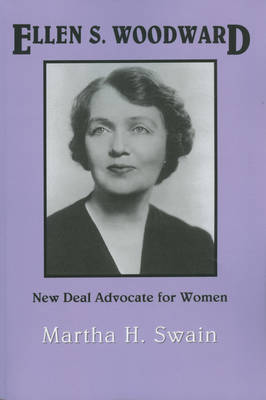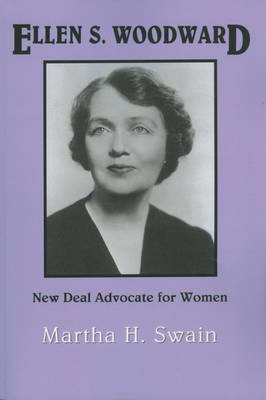
- Retrait gratuit dans votre magasin Club
- 7.000.000 titres dans notre catalogue
- Payer en toute sécurité
- Toujours un magasin près de chez vous
- Retrait gratuit dans votre magasin Club
- 7.000.0000 titres dans notre catalogue
- Payer en toute sécurité
- Toujours un magasin près de chez vous
59,45 €
+ 118 points
Description
Ellen S. Woodward (1887-1971) was touted as Roosevelt's second most powerful woman appointee. Among American women only Eleanor Roosevelt and Labor Department Secretary Frances Perkins could claim more elevated roles in the circle of FDR's administration. This long overdue biography of such a remarkable leader traces Woodward's odyssey from the parlors of her Mississippi clubwomen associates to a position as director of women's work relief under three successive New Deal agencies from 1933 to 1938. Swain depicts Woodward in the vital roles she took in alleviating the working woman's plight. Particularly rich is Swain's account of Woodward's attempts to remain vital in policymaking during the Truman era, when Eleanor Roosevelt was no longer the central figure of the women's coterie. Without minimizing the limitations of the programs under Woodward's aegis, Swain gives ample attention to the operation and internal dynamics of her ambitious projects. Though some of Woodward's project proved to be disappointing, others became rich legacies for programs in later administrations.
Spécifications
Parties prenantes
- Auteur(s) :
- Editeur:
Contenu
- Nombre de pages :
- 296
- Langue:
- Anglais
Caractéristiques
- EAN:
- 9781578068166
- Date de parution :
- 01-07-05
- Format:
- Livre broché
- Format numérique:
- Trade paperback (VS)
- Dimensions :
- 156 mm x 234 mm
- Poids :
- 417 g

Les avis
Nous publions uniquement les avis qui respectent les conditions requises. Consultez nos conditions pour les avis.






